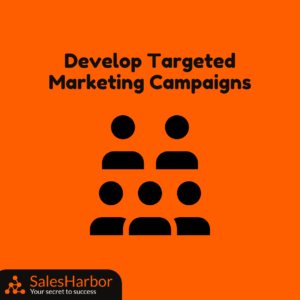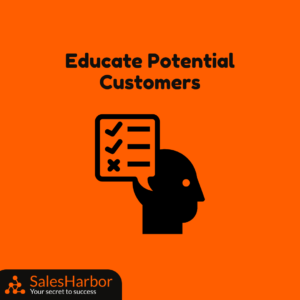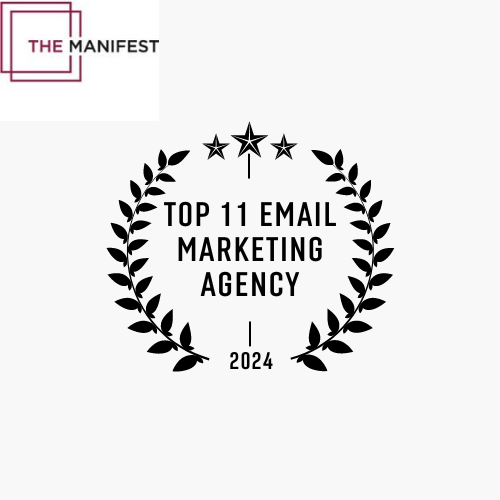B2B Lead Generation is a common goal for millions of companies around the world. With a strong strategy, capturing such leads and nurturing them can impact the revenue of a business greatly. However, there are a few misconceptions about it. Many believe that B2B lead generation is a target only for certain niches such as e-commerce, tech, fintech or real estate.
Through this thorough and informative article, we aim to eliminate this idea and introduce the importance of B2B lead generation in the renewable & solar energy industry. With that being said, let’s understand the challenges a business in this industry can face while generating leads.
Firstly, upfront costs attached to installing a renewable energy solution are pretty hefty. Whether it’s a solar panel or a wind turbine, initial costs can scare customers off. Moreover, the sales cycles can be relatively longer as well. This occurs due to the long-term planning required before closing a deal. To sum it up, convincing customers to make big investments is not easy even if the ROI will eventually be high.
On the contrary, despite the difficult nature of it, the foundational methods required to generate such leads are similar. It’s crucial to have unwavering consistency, and knowing how to nurture leads well. Now let’s look at 4 proven methods to generate B2B leads in the renewable & solar energy industry.
1. Develop Targeted Marketing Campaigns
Businesses in this sector can effectively catch potential consumers’ attention and increase conversions by developing strategies to match their consumer’s specific demands. Leading solar energy firms, like SolarCity (now a subsidiary of Tesla), SunPower Corporation, and Sunrun, have effectively used targeted marketing strategies to grow their client base and create leads.
SolarCity, for example, created a referral program incentivizing existing customers to promote its solar solutions, resulting in a considerable increase in quality leads. Additionally, they focused on maximizing energy production while minimizing running expenses.
SunPower Corporation concentrated its marketing efforts on showcasing the superior efficiency and performance of its solar panels. They targeted their outreach to locate businesses with high energy consumption and tailored a strategy to meet their financial objectives.
When building targeted marketing strategies for the renewable & solar energy industry, businesses should perform extensive market research to understand the sector’s challenges beforehand. This can be achieved by identifying significant industry segments, building buyer personas, and crafting a compelling message that resonates with target consumers.

2. Offer Financial Incentives
Offering financial incentives is an effective strategy to generate B2B leads in the renewable & solar energy industry. One useful suggestion is to adapt incentives to the individual needs and concerns of businesses that are exploring renewable energy solutions.
Offering solutions such as solar leases or power purchase agreements (PPAs) can assist businesses overcome the initial investment hurdle by providing flexible payment plans and predictable monthly expenses.
To further sweeten the pot and increase the financial appeal of renewable energy adoption for potential customers, consider offering incentives like tax credits, rebates, or performance-based agreements.
Now, let’s look at how leading solar energy companies have successfully used financial incentives to drive B2B lead generation initiatives. SunPower Corporation, for example, provides financing solutions such as solar leases and PPAs, allowing businesses to implement solar energy with a low initial expenditure.
On the other hand, Sunrun pioneered the solar lease model, allowing businesses to go solar with minimal upfront costs and predictable monthly payments. Vivint Solar incentivizes B2B customers with numerous financing options and incentive programs, making it financially feasible for enterprises to participate in renewable energy solutions.

3. Potential Customers
One of the most important strategies for producing B2B leads in the renewable & solar energy industry is equipping your potential customers with knowledge. Making educational materials that answer frequently asked questions and concerns about the adoption of renewable energy, such as webinars, and case studies, is one practical strategy.
Leading solar energy firms, such as SunPower Corporation, Sunrun, and Vivint Solar, have engaged in educational projects to help businesses understand solar technology and its potential influence on their operations.
Webinars and workshops are held by SunPower Corporation to offer comprehensive information on solar energy performance, efficiency, and financial advantages. Sunrun’s website provides educational tools such as guides and articles that explain solar technology and company financing possibilities.
Vivint Solar offers case studies highlighting successful solar installations in a variety of businesses, demonstrating the practical benefits of renewable energy adoption. Businesses can assist firms in making informed decisions surrounding the use of solar energy by teaching prospective customers about the benefits and viability of renewable energy solutions.

4. Utilize Success Stories
Harnessing the power of success stories is an excellent method for growing B2B leads in the renewable and solar energy industries. Success narratives go beyond product characteristics, weaving narratives about hurdles overcome and benefits gained from renewable energy implementation.
These are captivating examples of credibility that show how companies have successfully shifted to sustainable energy solutions and come out stronger, more eco-aware, and more efficient.
Storytelling is a successful example of this strategy. Rather than concentrating exclusively on technical specifications, businesses emphasize the human element, the transformational journey, and the rewards obtained. Businesses may engage with their audience on a deeper level by using these stories, which reflect their objectives for sustainability and innovation.
To summarize, success stories are critical for generating B2B leads in the renewable and solar energy industries. Companies can gain trust and illustrate tangible advantages by displaying real-world instances of successful renewable energy adoption. Leveraging these storylines builds trust and speeds the industry’s shift to sustainability.

Conclusion
To summarize, imagine a world where each business regards renewable energy as a requirement rather than an option. But to get there, we need to use more than just conventional lead generation methods.
If you’re looking for experts who understand this industry and its challenges, reach out to us for a quick intro call and get to know more about how SalesHarbor can assist you. We can integrate your desired strategies into your business’s framework seamlessly.
Read another article by WebFX on ways to generate B2B leads for Renewable Energy.



